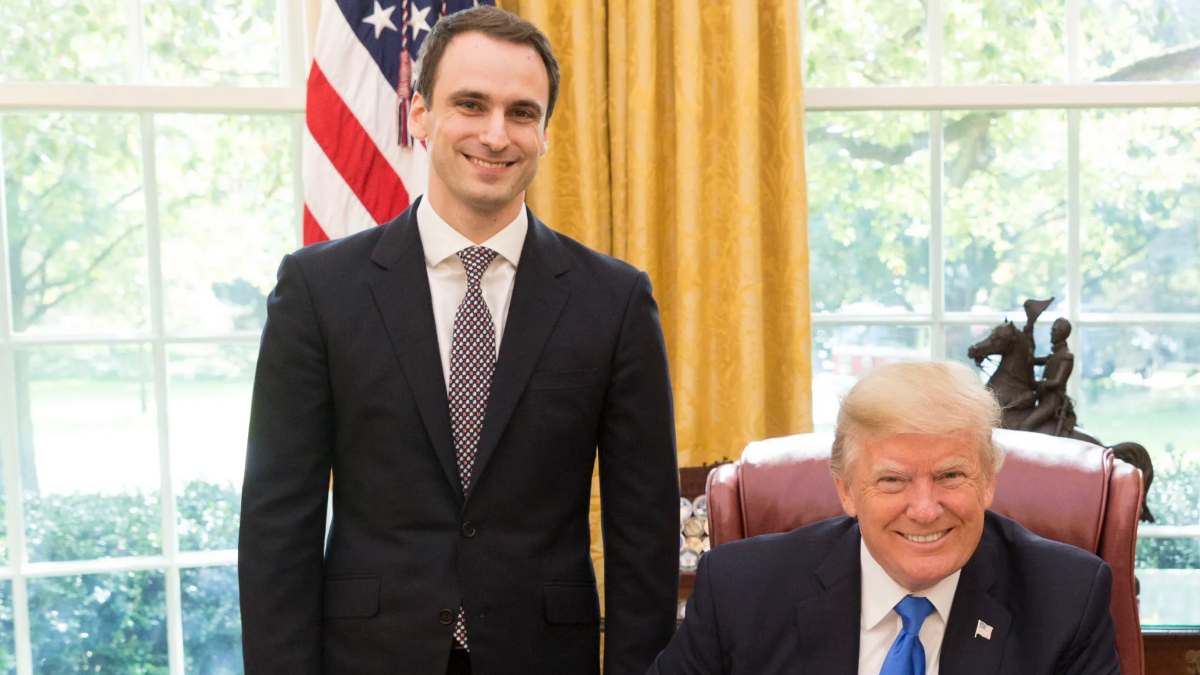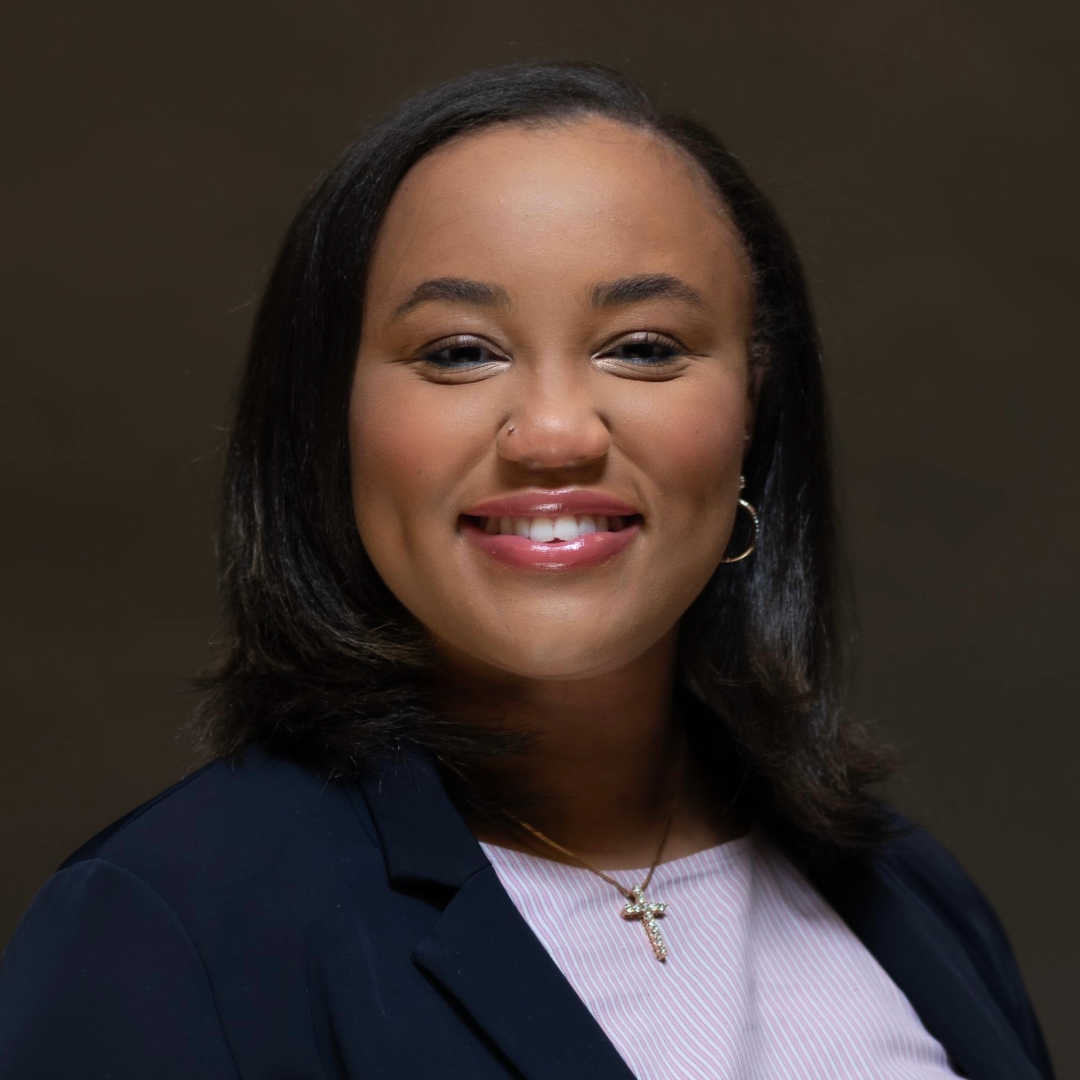Michael Kratsios Nomination to Direct OSTP Sent to US Senate
Marissa Braswell / Jan 24, 2025
President Donald Trump, joined by Michael Kratsios, signs a presidential memo at his Oval Office desk on October 25, 2017. (White House / Shealah Craighead)
In December, then President-elect Donald Trump posted on Truth Social that “Michael J.K. Kratsios will be the new Director of the White House Office of Science and Technology Policy (OSTP), and an Assistant to the President for Science and Technology.” This week, President Trump sent the nomination to the Senate for confirmation. But who is Kratsios, and what direction will he take as leader of OSTP?
A former intern for Senator Lindsay Graham (R-SC), before working for Trump, from 2010-2017, Kratsios worked for Thiel Capital, the venture capital firm owned by Peter Thiel, an early backer of Trump in 2016. During his seven-year tenure at the firm, Kratsios held a number of roles, including chief financial officer, chief compliance officer of Clarium Capital Management, and chief of staff, a role in which he worked closely with Thiel.
Kratsios began his journey with Trump in 2017 when he joined the Trump White House as Deputy Chief Technology Officer. He was promoted to White House Chief Technology Officer in 2019. Later that year, Kratsios was named to Fortune's "40 Under 40" list.
Kratsios is credited for warming Trump up to Big Tech. Trump had previously been regarded as hostile to companies such as Amazon, Meta, and Google, which appear keen to stay in the President’s good graces in his second term.
Kratsios’ work at the White House included issues such as AI, quantum computing, STEM education, and broadband communications. One of his biggest initiatives was crafting the AI executive order called the American AI Initiative. At a Center for Data Innovation event in 2019, he said, “The uniquely American ecosystem must do everything in its collective power to keep America’s lead in the AI race and build on our successes. And we must continue to do so in a way that embraces American values and spirit of innovation for the benefit of the American people.”
This initiative was followed up by the Promoting the Use of Trustworthy Artificial Intelligence in the Federal Government executive order, which outlined ethical guidelines regarding AI. Kratsios also helped establish The National Artificial Intelligence Initiative Office, created right before Trump left office in 2021. At the time, The Hill quoted Kratsios as saying, "The National Artificial Intelligence Initiative Office will be integral to the Federal government’s AI efforts for many years to come, serving as a central hub for national AI research and policy for the entire US innovation ecosystem.”
His other big project was the COVID-19 High-Performance Computing Consortium, a partnership between public and private entities meant to combat the spread of COVID-19. The partnership involved several federal agencies and labs, companies such as IBM and Microsoft, international partners in Korea, Mexico, and Japan, and academic institutions like the Massachusetts Institute of Technology and the University of Pittsburgh. The consortium aimed to use high-level computing to increase the speed at which the public could fight the virus.
In 2020, Kratsios took on a role at the Pentagon, where he was named Acting Under Secretary of Defense for Research and Engineering at the Department of Defense (DOD). In this role, he was responsible for ensuring that the department used the most advanced technology. He also oversaw many departments and programs within the DOD, including Missile Defense, Defense Innovation Unit, Space Development, and Advanced Research Projects.
While in the office, he received the Department of Defense Distinguished Public Service Medal, the highest award given to private citizens or non-career federal employees. In addition, he represented the US in several international forums, including the G7, G20, and OECD Ministerial Council.
After leaving office in 2021, Kratsios became Managing Director at Scale AI, a data management company. He described his role to the Wall Street Journal as bringing AI pilot projects to enterprises. The company was valued at almost $14 billion in May 2024. It has faced controversy over its labor practices.
Kratsios is likely to consider tech policy issues primarily through the lens of American competitiveness, consistent with the Trump administration’s “America First” approach. In a December 2023 panel discussion in San Francisco, Kratsios put it this way:
America must win. I mean, we're in a position now globally where our adversaries are pressing ahead at a speed and with a conviction that we've never seen before. And it's very clear to me as I sit in Silicon Valley, having stepped away for almost three years now, that the CCP has not stopped and it will not stop trying to dominate the world with technology. And in these core emerging technologies like artificial intelligence, like quantum information science, like biotech, as we see these are very, very dangerous technologies that put in the hands of bad actors. And the CCP has made it very clear that they will use these technologies for their authoritarian objectives. They not only want to do that, but then they want to export those technologies to people who are on the fence between either being with us in the United States and the sort of western developed world or follow the more authoritarian route. So I think it's for our own sort of future as a country and the future of our allies. We must win in these technological races and it's absolutely critical that we have the smartest and best minds out there in the world working on that problem, and we need them in government to do that.
Kratsios must be confirmed by the Senate to hold the role of Director of OSTP, but the Assistant to the President for Science and Technology role does not require confirmation.
Authors
